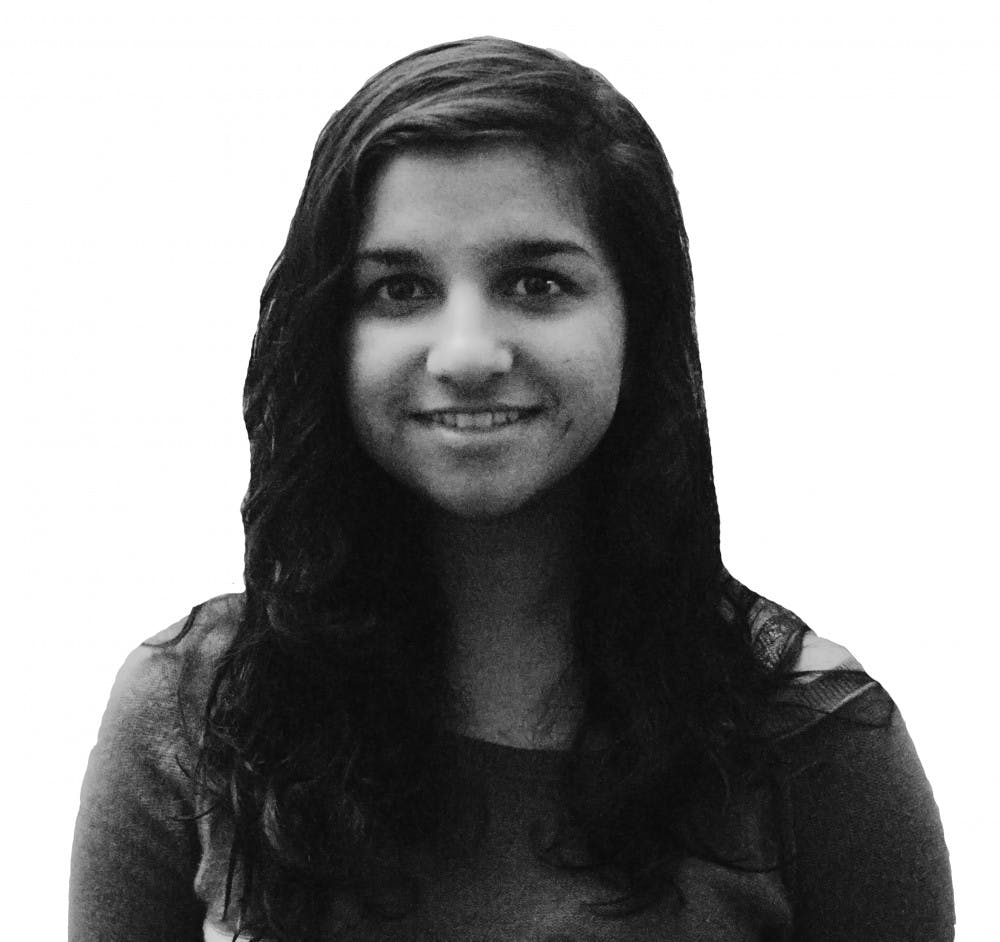I am done with people calling me an investment banker. It is time for an intervention.
Mitchell Hammer’s recent article, “Keep Calm and Conform On,” seems to have this label in mind for me and many of my peers at this University. Hammer presents an interesting and compelling argument, stating that students at the University conform too much to greater societal norms. We don’t stand out in the hordes of other young people hungry for opportunities and impassioned with creative energy. Princeton students are blase. We simply carry on with the status quo, pursuing our banking jobs and the serene, well-traveled routes to future employment opportunities.
Sure, many Wilson School majors (and those pursuing a plethora of other majors, mind you) seek careers on Wall Street. I am not one of them. I don’t know whether I want to go into law, journalism, public policy, business or something else.
Hammer brings up the fact that students at the University don’t look very different from one another. He comments on the lack of a strong presence of students with unconventional and visible tattoos, dyed hair or unique piercings. While I can understand his perspective here, I think that he has to look harder. Many Princeton students may have these attributes and choose not to flaunt them. This could be due to personal preferences or perhaps a general campus-wide trend, but I highly doubt that the eclectic student body at Princeton would judge someone severely for having such an image.
Besides, I don’t think that choosing not to show off your tattoo has much to do with conformity on the whole. I don’t equate preferences with beliefs, so I don’t think that choosing not to have a tattoo or preferring to hide one from the rest of campus says anything about the rigidity of your moral or intellectual fiber. More importantly, I don’t think that not having purple hair or a piercing shows that you are any less original than someone who has both of these things. To me, conforming is about subverting and silencing your beliefs because those of others are too loud to accommodate your own. I think it’s safe to say that most Princeton students aren’t afraid to speak their minds. They are intellectual non-conformists, and they pursue myriad opportunities that are “out of the box,” not just the ones that will yield a job on Wall Street.
When I first came to Princeton, I didn’t think I would be unique. I was (and possibly am) just your average Indian-American girl. I performed classical Indian dance and played the piano. I loved Indian food and Bollywood music, but when it came to hanging out with school friends, I was really into uniquely Californian food and the best top 100 songs. I was perhaps only different in the sense that I was choosing to study international relations as opposed to giving in to gentle, habitual pre-med coaxes and not-so-subtle hints administered by my parents. But when I came to Princeton, I realized how different I really was: I had traveled to five of seven continents, performed at international choral venues, written for a renowned newspaper and been interviewed for one of my pieces. All of these things added color to my story, which then fused into a vibrant spectrum when I encountered other Princeton students who had engaged in meaningful experiences without banking in mind.
I found that my story, when set into motion and dialogue with the stories of others, wove into an intricate fabric that couldn’t be replicated. I met people who had been to Ghana for a gap year, who were working on documentaries in Varanasi, India, who had met the President of the United States, who had won awards for scientific innovations, who had started ventures and organizations in every corner of the world. And although you can’t exactly equate uniqueness with nonconformity, it’s safe to say that these people stretched themselves beyond the status quo, choosing to address the issues and engage the populations that were most important to them. These people didn’t just have future employment in mind — they wanted to better themselves and engage in their communities as well.
People at Princeton may not be “different” in the most obvious ways. But I would encourage everyone to look deeper and find the facets that make each student here unconventional. To some extent, Hammer is correct. Our visual conformity is undeniable — the crew neck sweaters and jittery interview suits unite large swaths of our student body. But that doesn’t mean that we conform intellectually, ideologically or philosophically. To find the real nonconformists in the student body, you’ll have to start a conversation.

Prianka Misra is a sophomore from Castro Valley, Calif. She can be reached at pmisra@princeton.edu.









